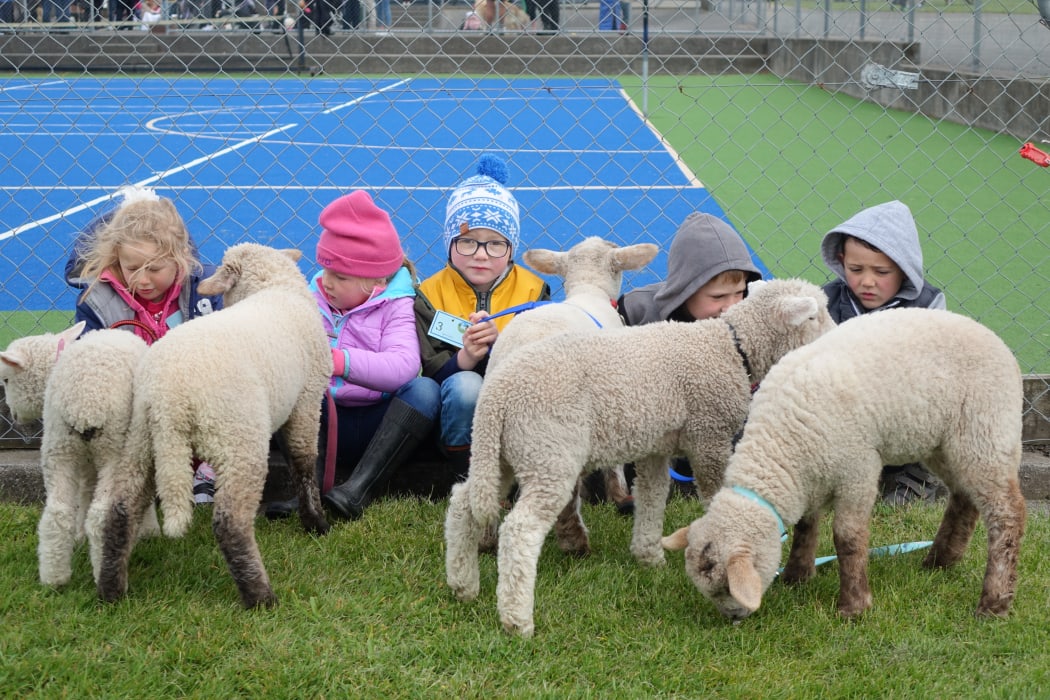The cattle disease, Mycoplasma bovis, has meant that lambs and goats have once again been the main attraction at some school calf club days this Spring.

Junior lamb competitors wait their turn at last year's pet day. Photo: RNZ / Robin Martin
Calf club is an annual tradition for farming families throughout New Zealand, with children rearing calves at home and bringing them to school to be judged
Last year rural schools were advised not to bring calves to school pet days, because of the risk of spreading the cattle disease Mycoplasma bovis further.
The Ministry for Primary Industries relaxed that position this Spring, instead advising organisers of some extra precautions they should take, including keeping calves at least two metres apart and giving them separate water and food containers.
But Waikato dairy farmer and Federated Farmers representative, Chris Lewis, said many rural schools had decided the simpler option was to still leave the calves at home this year.
"There is a lot of schools, I've been made aware of, that [are allowing] only lambs and goats, so the old calf club is minus the calves this year because of the M. bovis risk," he said.
The principal of Pukekawa School in North Waikato, Karen McCulloch, said their event was going ahead without calves this year. Instead they were expecting about 40 lambs and a handful of goats.
"It is disappointing, especially for the children who have got small blocks with cows on them, but they understand the significance of not having the calves," she said.
Ms McCulloch said hoped the cows could return to their event next year, which she said was an integral part of rural life.
"It's a very traditional day, it's the most important day of our school year, being as we're a rural school... many of our past students come along and the extended families," she said.
Chris Lewis also hoped next year more schools would take up the opportunity to return to a more traditional calf club day format. He said it would be a great opportunity to demonstrate to students and parents how good biosecurity practices can work.
"Every year you don't have it, it'll make it really, really hard to get people showing calves again," he said.



